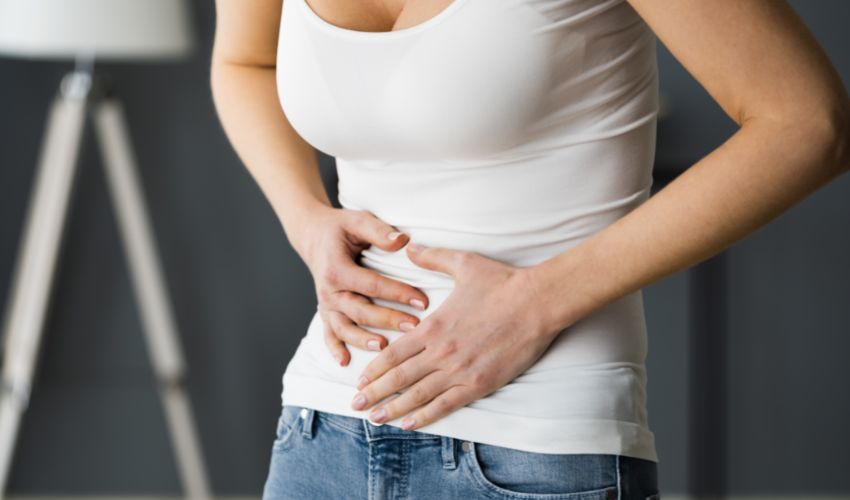Menopause is a natural biological process that occurs in women as they age. It is characterized by the cessation of menstrual periods for at least 12 months. Menopause marks the end of a woman’s reproductive years, and it usually occurs between the ages of 45 and 55. Menopause is a natural transition, but it can cause various physical and emotional symptoms that can be challenging to manage.
In this article, we will explore the different menopausal symptoms and provide some strategies on how to cope with them. We hope that this article will help you understand menopause better and make your transition more comfortable.
Menopausal Symptoms Headings:
- Hot Flashes and Night Sweats
- Vaginal Dryness and Painful Sex
- Mood Changes and Sleep Problems
- Urinary Incontinence and Frequent Urination
- Decreased Libido
Hot Flashes and Night Sweats:
Hot flashes and night sweats are common menopausal symptoms. They are caused by hormonal changes in the body, which lead to sudden, intense heat sensations and sweating. To manage hot flashes and night sweats, you can:
- Dress in layers so you can remove clothes as needed.
- Avoid triggers such as caffeine, alcohol, and spicy foods.
- Keep your bedroom cool and use breathable bed sheets.
- Try relaxation techniques such as deep breathing and meditation.
Vaginal Dryness and Painful Sex:
Vaginal dryness and painful sex are caused by a decrease in estrogen levels. This can cause the vaginal tissues to become thinner, drier, and less elastic. To manage vaginal dryness and painful sex, you can:
- Use a water-based lubricant during sex.
- Talk to your doctor about vaginal estrogen therapy.
- Practice pelvic floor exercises to improve vaginal muscle tone.
- Use a vaginal moisturizer to keep the tissues hydrated.
Mood Changes and Sleep Problems:
Menopause can cause mood changes and sleep problems. You may experience irritability, anxiety, and depression. To manage mood changes and sleep problems, you can:
- Exercise regularly to improve your mood and sleep quality.
- Practice stress-reducing activities such as yoga and meditation.
- Avoid caffeine, alcohol, and nicotine before bedtime.
- Talk to your doctor about hormone replacement therapy or other medications.

Urinary Incontinence and Frequent Urination:
Menopause can cause urinary incontinence and frequent urination due to changes in the urinary tract. To manage these symptoms, you can:
- Practice pelvic floor exercises to improve bladder control.
- Drink plenty of water to stay hydrated.
- Avoid bladder irritants such as caffeine and alcohol.
- Talk to your doctor about medication or surgery if necessary.
Decreased Libido:
Menopause can cause a decrease in libido or sexual desire. This can be due to hormonal changes, vaginal dryness, and other physical and emotional factors. To manage decreased libido, you can:
- Talk to your partner about your concerns and explore new ways to be intimate.
- Use a water-based lubricant during sex to reduce discomfort.
- Consider hormone replacement therapy or other medications.
- Talk to a therapist about any emotional or psychological issues that may be affecting your libido.
FAQs:
Can menopause cause weight gain?
Yes, menopause can cause weight gain due to hormonal changes, decreased muscle mass, and lifestyle factors such as diet and exercise.
How long do menopausal symptoms last?
Menopausal symptoms can last for several years, but the duration varies from woman to woman. On average, symptoms may last for around four years, but some women may experience symptoms for up to 10 years.
Is hormone replacement therapy safe?
Hormone replacement therapy (HRT) can be effective in managing menopausal symptoms, but it comes with some risks. HRT may increase the risk of breast cancer, blood clots, and stroke, so it should only be used under a doctor’s guidance and for a limited time.
Can menopause cause mood swings?
Yes, menopause can cause mood swings, irritability, and depression due to hormonal changes in the body. These emotional symptoms can be managed with lifestyle changes, therapy, and medication if necessary.

Are there any natural remedies for menopausal symptoms?
Yes, there are several natural remedies that may help with menopausal symptoms, including black cohosh, soy, and red clover. However, it’s important to talk to your doctor before taking any supplements or herbal remedies.
Can menopause cause insomnia?
Yes, menopause can cause insomnia or sleep disturbances due to hormonal changes and other factors such as hot flashes and mood changes. Lifestyle changes, relaxation techniques, and medication may help manage sleep problems.
Conclusion:
Menopause is a natural transition that every woman goes through, but it can cause various physical and emotional symptoms that can be challenging to manage. Understanding menopausal symptoms and developing coping strategies can make the transition more comfortable. By following the tips and advice provided in this article, you can manage menopausal symptoms such as hot flashes, vaginal dryness, mood changes, urinary incontinence, and decreased libido. If you’re experiencing severe or persistent symptoms, it’s important to talk to your doctor about treatment options.






















